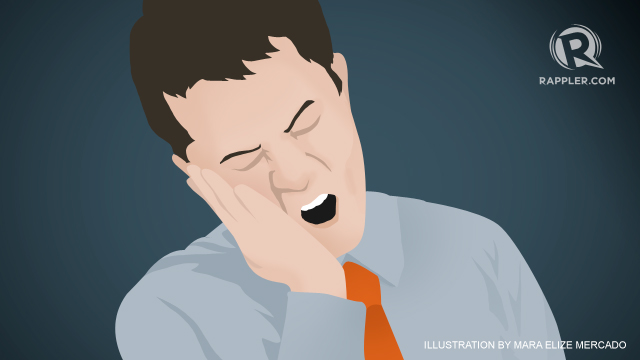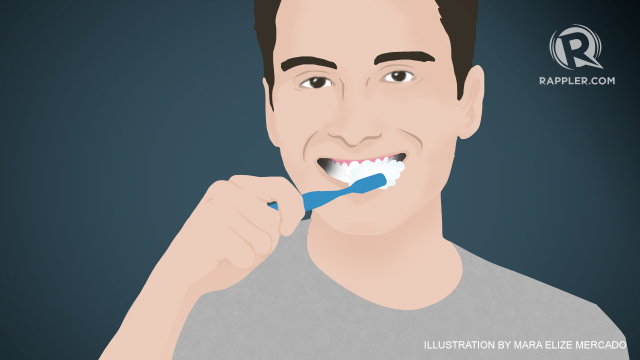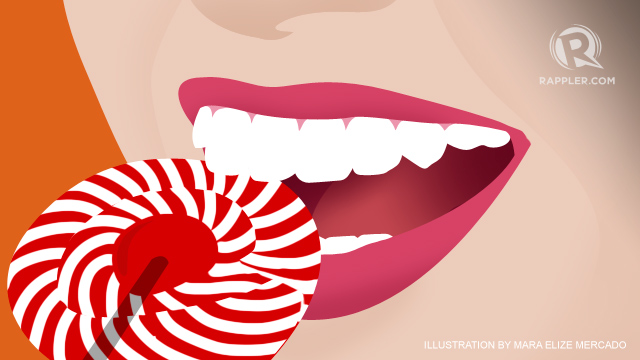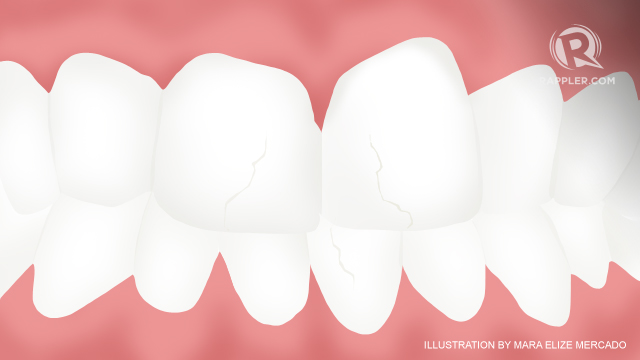SUMMARY
This is AI generated summarization, which may have errors. For context, always refer to the full article.
MANILA, Philippines – What exactly do you know about your teeth?
Some of us may just be aware that we should brush our teeth every day and that regular visits to the dentist are a must. But we should know more than that.
There are plenty of misconceptions about dental hygiene, teeth, and prevention of oral diseases, and since dental hygiene affects our overall health, everybody needs to be aware of what is true and what isn’t.
We choose 5 common dental hygiene myths and try to put an end to what most people believe is true.
1. Bad breath is only caused by poor oral hygiene

There are many factors that cause bad breath or halitosis. Of course, not practicing proper oral hygiene is the number one cause but what you eat and drink, habits such as smoking and drinking and taking medications that cause dry mouth may also cause halitosis.
Other causes could be tooth decay, gum disease and illnesses such as pneumonia, diabetes, acid reflux and diabetes.
So how do you get rid of bad breath?
For quick fixes, keep a mint in your pocket or chew mint gum but for better (and long lasting) results you have to practice proper oral hygiene and live a healthy lifestyle.
Brush 2–3 times a day, floss once a day and go for dental check-ups every 6 months. You can also use some mouthwash from time to time if you feel that you weren’t able to reach those hard to reach places with your toothbrush and floss. These steps will lessen plaque build up, which causes bad breath, and prevent it from hardening into tartar.
And remember to brush your tongue!
2. You will know if you have tooth decay

Tooth decay doesn’t have early symptoms.
The pain you experience due to tooth decay is caused by nerve damage. When you start to feel pain, this means the damage is so extensive that you need your dentist’s advice on how to go about it. He or she may recommend you to undergo a root canal or tooth extraction if the damage is irreparable.
This is why regular dental check ups are a must. Visit your dentist every 6 months to prevent tooth decay, or detect them before it gets worse, and other mouth diseases that cause pain and discomfort. You’ll also avoid expensive dental treatments.
3. Poor oral health only affects the mouth

The consequences of poor oral hygiene may go beyond your teeth and gums. It can cause or increase the risk of diseases such as diabetes and heart disease.
Periodontal disease or gum disease has been linked to diabetes. Gum inflammation may weaken the body’s ability to control blood sugar and affect how the body will utilize insulin.
Bleeding gums allow bacteria to enter our bloodstream and may cause blood clots that increase your chances of getting a heart attack. A study also showed that 91% of those with heart disease suffer from gum disease.
So other than practicing good oral hygiene, maintain a healthy lifestyle to reduce your risk of these diseases. What you eat and drink also affect your teeth and gums. Dentists recommend you to limit your alcohol intake and smoking as these may increase the risk of gum disease and oral cancer.
Also keep in mind that you need the best tools to clean your mouth (READ: The dirty truth about your toothbrush). Don’t settle for a toothbrush that can’t get the job done. Angled bristles is recommended to get in between the hard to reach areas of your mouth like in between teeth.
4. Sugar is the primary cause for tooth decay

You often hear your elders telling you to avoid eating candies and sweets so you won’t get tooth decay. But the truth is, tooth decay is caused by acid produced by bacteria, and carbohydrates trigger the production of the acid.
Sugar, rice, fruits and potatoes are all carbs and exposing your teeth to these for a long period of time without cleaning your teeth will only increase your chances of developing tooth decay. Moreover, if you consume highly acidic food such as sour candies, soft drinks and fruit juices, it can lead to enamel erosion making your teeth more prone to decay.
But you should also remember that brushing right after a meal is not recommended. Wait for at least 30 minutes before you brush your teeth to avoid scrubbing the acid even more on your teeth.
So yes, do avoid eating sweets because it is bad for your teeth (and health) but do take into consideration other types of food that also contribute to tooth decay.
5. Cracks in teeth will not increase your chances of getting tooth decay

It’s a fact that tooth decay is likely to grow in between teeth. If you have cracks in your teeth then that will also create more places for bacteria to hide and slowly damage your teeth. These are the areas a regular toothbrush can’t reach.
Flossing and using mouthwash can get into those tiny cracks. Using the right toothbrush will help as well. Regular check-ups with the dentist will also determine if there are cracks or chips on your teeth that need fixing.
Oral health should not be the least of your priorities because your teeth need as much attention and care as any other part of your body. Don’t be afraid to ask your dentist questions or research online on what to do if faced with oral health problems. – Rappler.com
Add a comment
How does this make you feel?
There are no comments yet. Add your comment to start the conversation.